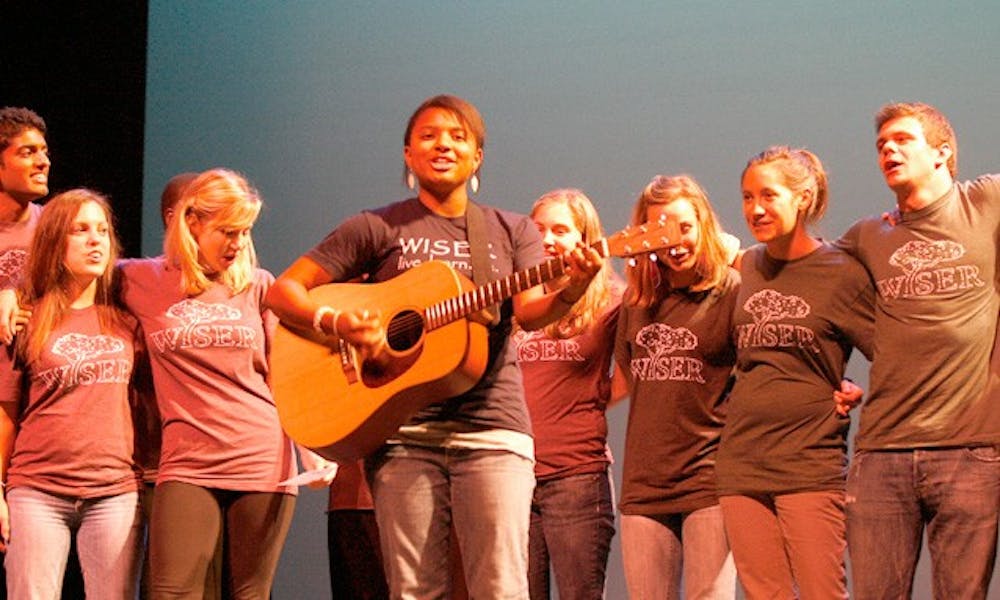To the dismay of Kenyan campers and DukeEngage students who planned to attend CampWISER in Muhuru Bay, Kenya, this summer marked the second time since 2007 that camp was not in session.
The DukeEngage program was shut down for the summer after a dispute occurred between the Women’s Institute for Secondary Education and Research school and its contractor, said Sherryl Broverman, associate professor of the practice of biology and co-founder of WISER.
CampWISER is a summer program committed to promoting gender equality among male and female Kenyan high school students.
After being fired for not completing his responsibilities, the contractor tried to obtain a judge’s order to shut down the school until he was paid the remainder of his stipulated salary. Although the Kenyan magistrate eventually ruled in the school’s favor, Broverman could not immediately guarantee that DukeEngage students would have a place to work and stay.
Students instead partnered with a different organization in two different locations in Kenya.
“It was a frustrating thing for most of the Duke students,” Broverman said. “This was the last week when students were about to go into the DukeEngage orientation program... so we decided to send them to other partners in Kenya. Sadly, when 10 days later everything started up again, DukeEngage students were already reassigned.”
The three-year-old residential camp is open to male and female Kenyan high school students and is primarily run by DukeEngage members, Broverman said.
DukeEngage Director Eric Mlyn said students were relocated to Mombasa and Kakamega through the Foundation for Sustainable Development, an American volunteer organization that fosters international development. The FSD programs, however, were different from the one at Muhuru Bay.
“The students worked for different organizations in the community, doing developmental work for [many] organizations [including] an organization for developmental disabilities, an orphanage, an HIV education center and things like that,” Mlyn said. “So it was a very different project than Muhuru Bay, but one that was successful and important for Duke.”
Sophomore Sadhna Gupta, who expected to attend CampWISER this summer, said she was extremely disheartened by the camp’s cancellation. Students were told the program was shut down for “safety reasons,” and either had the option of relocating to a different city in Kenya or applying for DukeEngage next year, she added.
Mlyn said all students chose to work with the FSD programs.
“[DukeEngage] didn’t even explore the possibility of going to WISER... and the whole issue got fixed in two weeks,” Gupta said. “We were supposed to be 13 kids going to school in a rural area, living all together, and I ended up in an urban city.”
Gupta, however, said she ended up “loving” her program and is planning to return to Kenya next summer, hopefully to CampWISER.
The previous time Dukies were barred from attending CampWISER occurred in 2008, when ethnic violence erupted throughout the country. Kenya was put on Duke’s Restricted Regions List by the Office of the Vice Provost for International Affairs and Development in January 2008, and Duke students were subsequently prohibited from traveling there.
In previous years, Duke students at CampWISER led sessions on adolescent health, gender, leadership and team building, Broverman said.
Duke students who received funding outside of DukEngage were still able to go to Muhuru Bay, Broverman said, although they did not work at CampWISER.
Senior Edwin Coleman was one of those students. Coleman, who worked at CampWISER in 2009, returned to Muhuru Bay this summer on a research grant secured with Broverman’s help from the Duke Global Health Institute.
Last year, Coleman developed a poetry workshop for elementary and middle school students. He said his workshop was extremely successful this summer, as he was able to reach 10 out of 14 primary schools in Muhuru Bay.
And despite this summer’s events, Broverman said she hopes Duke students will continue to work at CampWISER.
“I hope as long as DukeEngage exists, kids will be coming to WISER,” Broverman said. “Usually I have about 12 to 13 DukeEngagers and two to five kids from other funding agencies, and I’ve already told DukeEngage I want to renew [the program] for next year.”
Get The Chronicle straight to your inbox
Sign up for our weekly newsletter. Cancel at any time.
Mlyn, however, said because of this summer’s events, the final decision on the program is still indefinite.
“We’re going to look at the WISER program and make a decision [for next year],” he said. “I really need to find out what the situation is on the ground but we’ll certainly look at continuing the program based on what we learn.”

